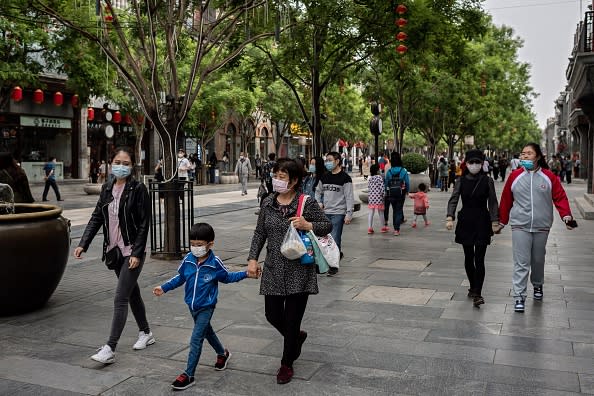China accuses the US of telling 'preposterous lies' about coronavirus
China has returned serve at the US over what it is calling 24 “preposterous allegations and lies” circulated about coronavirus.
Tensions between the US and China have grown over the past few weeks.
President Donald Trump has repeatedly pointed the figure at China, even going as far as calling coronavirus “the Chinese virus” and said he’s sought reparations.
“We believe it could have been stopped at the source,” he told reporters last month.
“It could have been stopped quickly and it wouldn't have spread all over the world.”

Origin of coronavirus yet to be proven, China says
In response, China’s foreign ministry has released claims arguing against 24 allegations it says were made by the US government.
The department denounced suggestions the virus’s origin is Wuhan.
“Being the first to report the virus does not mean that Wuhan is its origin,” China’s foreign ministry said.
“In fact, the origin is still not identified. Source tracing is a serious scientific matter, which should be based on science and should be studied by scientists and medical experts.”
The department also claims coronavirus came from a Wuhan lab, someone eating a bat and that China is reopening wildlife wet markets as false.

The US last week claimed it had information suggesting coronavirus came from a Chinese lab.
The ministry also defended China’s handling of the virus and release of information.
“What has happened is an unexpected attack by an unknown virus against human beings,” the department said.
“It takes time to study and understand it. China has provided timely information to the world in an open, transparent and responsible manner.”
China denies ‘bribing and controlling’ WHO
Mr Trump pulled funding from the World Health Organisation last month after calling the body “China-centric”.
He suggested China’s contribution to WHO was roughly 10 per cent of what the US gives annually.

China’s foreign ministry denied claims it “controls and bribes WHO”.
“China firmly supports multilateralism,” the department said.
“We have all along been in good communication and cooperation with WHO but we have never attempted to manipulate the organisation.
“The suspension of funding by the US, the largest contributor to WHO, has been widely opposed by the international community.”
Among other allegations the department denounced are that China’s been hoarding medical supplies, it is responsible for the global spread of COVID-19 and that it expelled US journalists from the country.

China’s relationship with Australia hasn’t gone unscathed throughout the pandemic either.
Australia’s called for an investigation into China’s involvement with COVID-19.
The fatal danger which is spiking due to coronavirus pandemic
New fears around 'entirely new chapter' of coronavirus after boy dies from rare illness
Chinese officials publicly threatened to impose economic sanctions on Australia in retaliation to the investigation.
China's foreign ministry spokesman Geng Shuang said in Beijing last month Australia’s investigation is “political manipulation”.
"We advise Australia to give up its ideological prejudices," he said.
The latest row involves Australia’s export of barley, with China threatening to slap major tariffs in a move that could cost grain exporters hundreds of millions of dollars.
Barley is Australia's second most valuable agricultural export to China, with the trade worth $1.5 billion.
Australia is expected to bring China to the World Trade Organisation to fight against the tariffs.
Prime Minister Scott Morrison said he doesn’t believe the tariffs are connected to Australia’s investigation.
with Reuters and AAP
Do you have a story tip? Email: newsroomau@yahoonews.com.
You can also follow us on Facebook, Instagram and Twitter and download the Yahoo News app from the App Store or Google Play.





